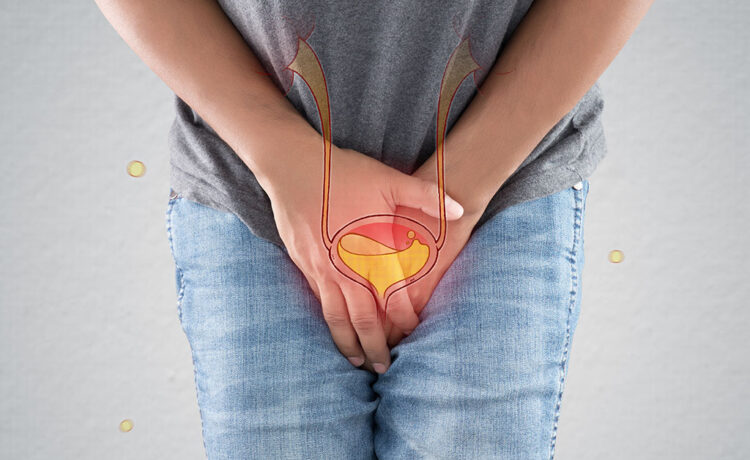Urinary incontinence is a condition that affects millions of men and women worldwide, yet it is often underreported and under-discussed due to the embarrassment many feel about the issue. However, urinary incontinence is a common and treatable condition that can have a significant impact on a person’s quality of life. Whether it’s a slight leakage or the inability to control urination, urinary incontinence can be managed with the help of a urologist.
In this blog post, we’ll explore the different types of urinary incontinence, its causes, and how a urologist can help you restore your confidence and improve your quality of life through various treatment options.
What is Urinary Incontinence?
Urinary incontinence is the involuntary loss of urine, ranging from occasional leaks to complete loss of bladder control. While it is more common among older adults, it can affect individuals of all ages, including those who are younger. Urinary incontinence can have a significant psychological and emotional impact, leading to anxiety, embarrassment, and social isolation.
The condition can occur suddenly, and in many cases, it may get worse over time. The good news is that urinary incontinence is treatable, and a urologist can help determine the root cause and create a personalized treatment plan.
Types of Urinary Incontinence
There are several types of urinary incontinence, and understanding the specific type you are dealing with is essential for choosing the appropriate treatment:
- Stress Incontinence: This is the most common type of incontinence and occurs when physical activities such as coughing, sneezing, laughing, or lifting heavy objects put pressure on the bladder. Stress incontinence often occurs when the muscles around the bladder are weakened, preventing them from controlling urine flow. This type of incontinence is more common in women, especially after childbirth or menopause.
- Urge Incontinence (Overactive Bladder): Urge incontinence is characterized by a strong, sudden need to urinate, often followed by involuntary urine loss. It may happen frequently, and individuals with urge incontinence might feel as though they need to urinate urgently, even if their bladder isn’t full. This condition is often related to bladder muscle problems or nerve issues.
- Overflow Incontinence: Overflow incontinence occurs when the bladder doesn’t empty completely, causing it to overflow. This can lead to constant dribbling of urine or an inability to fully urinate. It may occur due to bladder obstruction, nerve problems, or weakened bladder muscles.
- Functional Incontinence: This type of incontinence is caused by physical or mental impairments that make it difficult for a person to reach the bathroom in time. Conditions like arthritis, dementia, or mobility issues can make it difficult for individuals to manage their bathroom needs.
- Mixed Incontinence: Mixed incontinence involves a combination of different types of incontinence, typically stress and urge incontinence. People with mixed incontinence experience a mix of leakage from physical exertion as well as urgent, frequent urination.
Causes of Urinary Incontinence
The causes of urinary incontinence can vary widely depending on the type. Some of the most common causes include:
- Age-related changes: As people age, the bladder muscles may weaken, and the bladder’s capacity to hold urine may decrease. This is particularly true for women after menopause and men with prostate problems.
- Pregnancy and childbirth: During pregnancy, the added pressure on the bladder can lead to stress incontinence. Vaginal childbirth can also weaken the pelvic floor muscles, increasing the risk of incontinence later in life.
- Prostate problems: In men, conditions like benign prostatic hyperplasia (BPH) or prostate cancer treatments (such as surgery or radiation) can affect the bladder’s ability to function properly, leading to incontinence.
- Neurological conditions: Conditions such as Parkinson’s disease, multiple sclerosis, or spinal cord injuries can interfere with the nerves that control the bladder, leading to incontinence.
- Obesity: Excess weight can put additional pressure on the bladder and weaken the pelvic floor muscles, increasing the risk of stress incontinence.
- Medications: Certain medications, such as diuretics or medications for high blood pressure, can increase urination frequency or interfere with bladder function.
How a Urologist Can Help
If you are experiencing urinary incontinence, consulting a urologist is an essential first step. Urologists specialize in the urinary tract and are experts in diagnosing and treating conditions that affect bladder function. Here’s how a urologist can help:
- Comprehensive EvaluationThe first step in treating urinary incontinence is a thorough evaluation. Your urologist will start by reviewing your medical history, symptoms, and lifestyle factors. They may ask about the frequency and types of incontinence you experience, as well as any underlying conditions that might be contributing to the issue. A physical exam may also be conducted to assess pelvic floor health and bladder function.
- Diagnostic Tests: In some cases, the urologist may recommend additional tests to determine the cause of incontinence. These may include:
- Urinalysis: A urine test to check for infection or other abnormalities.
- Bladder diary: Keeping track of your urination patterns for a few days helps the urologist assess your symptoms and determine the severity.
- Post-void residual (PVR) test: This test measures how much urine remains in the bladder after urination, which can help identify overflow incontinence.
- Urodynamic testing: This test evaluates how well the bladder and urethra are storing and releasing urine. It can help diagnose urge incontinence or bladder dysfunction.
- Urinalysis: A urine test to check for infection or other abnormalities.
- Treatment Options for Urinary Incontinence: Based on your diagnosis, a urologist will recommend treatment options tailored to your needs. These options may include:
- Pelvic Floor Exercises (Kegel exercises): Strengthening the pelvic floor muscles can improve bladder control, especially for stress incontinence. A urologist or physical therapist can guide you on how to perform Kegel exercises properly.
- Medications: For urge incontinence, medications that relax the bladder or improve bladder muscle control may be prescribed. These include anticholinergic medications or beta-3 agonists.
- Behavioral Therapy: Techniques such as bladder training and scheduled bathroom visits can help improve control over urination. A urologist may recommend a program of gradual bladder training to reduce the frequency of urination.
- Biofeedback: This technique helps you learn how to control your pelvic muscles by providing visual or auditory cues. Biofeedback can be useful in strengthening the muscles that support bladder function.
- Minimally Invasive Procedures: In some cases, more advanced treatments may be needed, such as botulinum toxin (Botox) injections to reduce bladder spasms or injections of bulking agents to improve urethral closure.
- Surgery: In more severe cases, surgical treatments may be necessary. Options include sling procedures for stress incontinence or bladder neck suspension surgery. Urologists may also recommend an implanted device to help control urination.
- Pelvic Floor Exercises (Kegel exercises): Strengthening the pelvic floor muscles can improve bladder control, especially for stress incontinence. A urologist or physical therapist can guide you on how to perform Kegel exercises properly.
- Lifestyle Modifications: A urologist will also recommend lifestyle changes to help manage urinary incontinence. These may include weight management, reducing caffeine and alcohol intake, and avoiding fluids late in the evening to reduce nighttime incontinence.
Restoring Confidence and Quality of Life
Urinary incontinence doesn’t have to be a permanent condition. By seeking help from a urologist, you can gain control over your bladder and restore your confidence. The treatment options available today are effective, and with the right approach, most people can experience significant improvements in their symptoms.
Remember, you’re not alone—urinary incontinence is a common condition, and seeking treatment is the first step toward regaining control over your life. If you’re struggling with urinary incontinence, don’t hesitate to make an appointment with a urologist. With professional care and the right treatment, you can live a more comfortable and confident life. We recommend urologist brooklyn.





